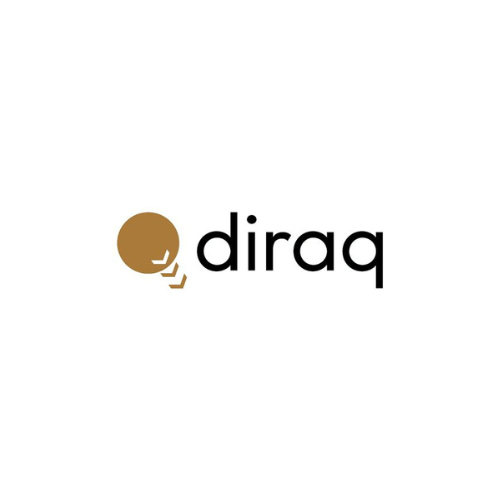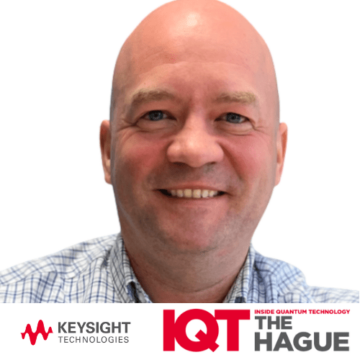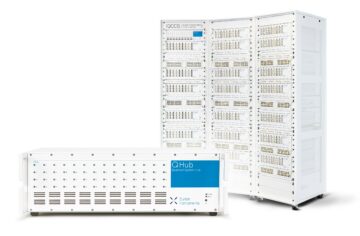
By Kenna Hughes-Castleberry posted 27 Mar 2024
Engineers at Diraq, a frontrunner in developing quantum processors utilizing silicon quantum dot technology, have advanced by enabling quantum computers to operate at significantly warmer temperatures. This advancement, detailed in a peer-reviewed study published in Nature, marks a pivotal step towards creating more potent, cost-effective, and energy-efficient quantum computing systems. The research highlights the Diraq team’s success in maintaining stability and high accuracy in spin-based quantum processors at temperatures 20 times warmer than previously achievable, addressing a major challenge in quantum computing: the necessity of ultra-low temperatures for qubit operation.
“This is an exciting piece of research from Diraq and an important milestone for the field of spin-based quantum computing. It means Diraq’s hardware has reached a standard where it’s now possible to run complex error correction techniques. This is a necessary step for fault-tolerant quantum computing and will help set a path towards useful, spin-based quantum computers,” says Steve Brierley, CEO of Riverlane, a quantum engineering company
Traditional silicon-based electronic devices are known to generate heat, posing a limitation as quantum computing technologies demand cooling to near absolute zero to function effectively. The new findings by Diraq demonstrate high-fidelity spin-based quantum computation at temperatures above one Kelvin, making it compatible with the thermal operation range of conventional electronics. This compatibility paves the way for running complex error correction routines essential for fault-tolerant quantum computing, according to Jonathan Huang, lead author of the study and a research associate at Diraq.
Diraq’s innovative approach, involving spins in silicon, differentiates it from competitors and reduces the need for extensive cooling, thereby lowering the costs and complexity of quantum computing systems. Professor Andrew Dzurak, CEO and Founder of Diraq, emphasized the significance of “hot qubits” in enabling computations far beyond the capability of today’s supercomputers, offering faster, more accurate analyses while conserving energy and reducing costs.
The company’s vision extends to becoming an end-to-end quantum computing provider, integrating the strengths of chip manufacturers, cloud computing, and software algorithm providers. By leveraging existing semiconductor industry investments and utilizing modified transistors, Diraq aims to scale and integrate quantum computing into various sectors, including pharmaceuticals, materials science, finance, and energy management. This technological leap, facilitated by Diraq’s research, sets the stage for quantum computing to revolutionize industries by solving problems of global significance, tapping into a market projected to generate significant annual revenue by 2035.
Kenna Hughes-Castleberry is the Managing Editor at Inside Quantum Technology and the Science Communicator at JILA (a partnership between the University of Colorado Boulder and NIST). Her writing beats include deep tech, quantum computing, and AI. Her work has been featured in National Geographic, Scientific American, Discover Magazine, New Scientist, Ars Technica, and more.
- SEO Powered Content & PR Distribution. Get Amplified Today.
- PlatoData.Network Vertical Generative Ai. Empower Yourself. Access Here.
- PlatoAiStream. Web3 Intelligence. Knowledge Amplified. Access Here.
- PlatoESG. Carbon, CleanTech, Energy, Environment, Solar, Waste Management. Access Here.
- PlatoHealth. Biotech and Clinical Trials Intelligence. Access Here.
- Source: https://www.insidequantumtechnology.com/news-archive/diraq-makes-quantum-leap-with-breakthrough-discovery-operating-quantum-computing-processors-at-20x-warmer-temperatures/
- :has
- :is
- :where
- 20
- 2024
- 2035
- 20x
- 27
- 500
- a
- About
- About Quantum
- above
- Absolute
- According
- accuracy
- accurate
- achievable
- addressing
- advanced
- advancement
- AI
- aims
- algorithm
- American
- an
- analyses
- and
- Andrew
- annual
- ANNUAL REVENUE
- approach
- ARE
- AS
- Associate
- At
- author
- beats
- becoming
- been
- between
- Beyond
- breakthrough
- by
- capability
- categories
- ceo
- CEO and Founder
- challenge
- chip
- Cloud
- cloud computing
- Colorado
- company
- Company’s
- compatibility
- compatible
- competitors
- complex
- complexity
- computation
- computations
- computers
- computing
- conventional
- cost-effective
- Costs
- Creating
- deep
- deep tech
- Demand
- detailed
- developing
- Devices
- discover
- discovery
- DOT
- editor
- effectively
- Electronic
- Electronics
- emphasized
- enabling
- end-to-end
- energy
- Engineering
- error
- essential
- Ether (ETH)
- exciting
- existing
- extends
- extensive
- facilitated
- far
- faster
- featured
- field
- finance
- findings
- For
- founder
- from
- function
- generate
- geographic
- Global
- Hardware
- Have
- help
- her
- High
- highlights
- HTTPS
- huang
- image
- important
- in
- include
- Including
- industries
- industry
- innovative
- inside
- Inside Quantum Technology
- integrate
- Integrating
- into
- Investments
- involving
- IT
- jonathan
- Kelvin
- known
- lead
- Leap
- leveraging
- limitation
- lowering
- magazine
- maintaining
- major
- MAKES
- Making
- management
- managing
- Manufacturers
- mar
- Market
- materials
- max-width
- means
- milestone
- modified
- more
- National
- Nature
- Near
- necessary
- necessity
- Need
- New
- nist
- now
- of
- offering
- ONE
- operate
- operating
- operation
- Partnership
- path
- paves
- peer-reviewed
- pharmaceuticals
- piece
- pivotal
- plato
- Plato Data Intelligence
- PlatoData
- possible
- posted
- potent
- previously
- problems
- processors
- Professor
- projected
- provider
- providers
- published
- Publishes
- Quantum
- quantum computers
- quantum computing
- Quantum dot
- quantum technology
- Qubit
- range
- reached
- reduces
- reducing
- research
- Results
- revenue
- revolutionize
- Riverlane
- routines
- Run
- running
- says
- Science
- scientific
- Scientist
- Sectors
- semiconductor
- set
- Sets
- significance
- significant
- significantly
- Silicon
- silicon quantum dot
- Software
- Solving
- spins
- Stability
- Stage
- standard
- Step
- Steve
- Steve Brierley
- strengths
- Study
- success
- supercomputers
- Systems
- tapping
- tech
- techniques
- technological
- Technologies
- Technology
- than
- The
- thereby
- thermal
- this
- times
- to
- today’s
- towards
- true
- university
- useful
- Utilizing
- various
- vision
- Warmer
- Way..
- while
- will
- with
- Work
- working
- writing
- zephyrnet
- zero












